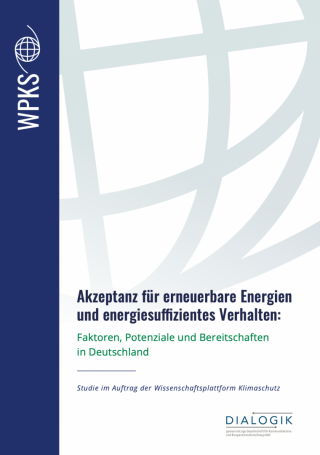The energy crisis in the past year 2022, started by Russia's war on Ukraine, has highlighted the vulnerability of energy supply structures in Germany. This has led to a grown awareness of a secure, independent and affordable energy supply. In this context, accelerating the energy transition is not only a decisive factor in achieving the climate goals, but also the key to overcoming the dependencies and vulnerabilities in Germany's energy supply.
The acceptance of the population towards new infrastructure projects is crucial for the accelerated expansion of renewable energies. Furthermore, reduced energy consumption is a key to energy security.
In consideration of this background, the study conducted by DIALOGIK and funded by the Wissenschaftsplattform Klimaschutz (WPKS) explores the question of to what extent and under what conditions citizens in Germany are currently willing to tolerate new infrastructure projects for an energy transition and to forego certain energy services.
For this purpose, factors, potentials and willingness for social acceptance and energy-sufficiency behaviour were identified on the basis of a literature review and qualitative interviews with German citizens.
The study is available on the website of the WPKS.
 |
Dratsdrummer, F., Witzel, B., Kuhn, R. (2023): Akzeptanz für erneuerbare Energien und energiesuffizientes Verhalten: Faktoren, Potenziale und Bereitschaften in Deutschland. Studie im Auftrag der Wissenschaftsplattform Klimaschutz. Berlin |
